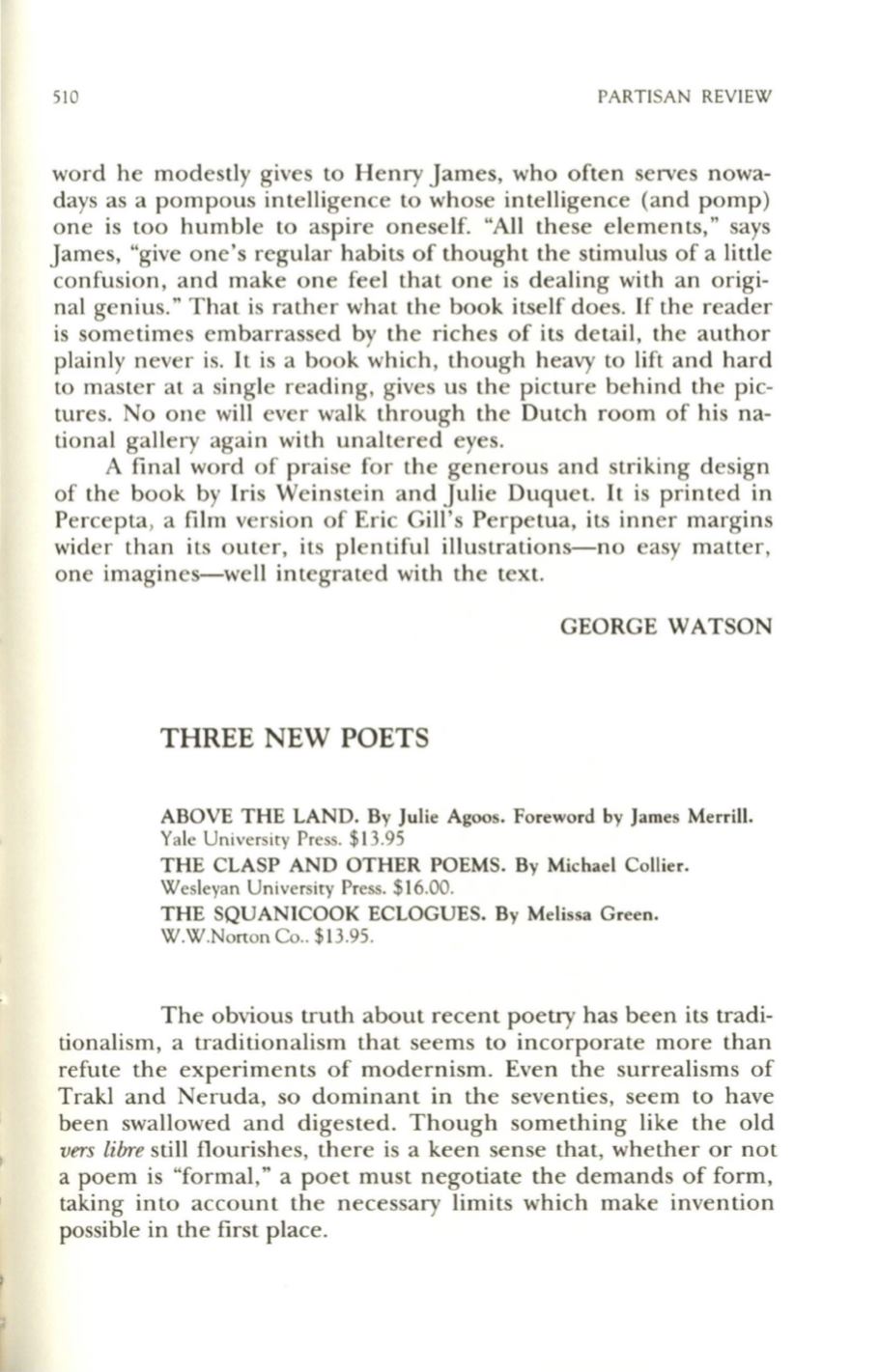
510
PARTISAN REVIEW
word he modestly gives to Henry James, who often serves nowa–
days as a pompous intelligence to whose intelligence (and pomp)
one is too humble to aspire oneself. "All these elements," says
James, "give one's regular habits of thought the stimulus of a little
confusion, and make one feel that one is dealing with an origi–
nal genius." That is rather what the book itself does. If the reader
is sometimes embarrassed by the riches of its detail, the author
plainly never is. It is a book which, though heavy to lift and hard
to master at a single reading, gives us the picture behind the pic–
tures. No one will ever walk through the Dutch room of his na–
tional gallery again with unaltered eyes.
A final word of praise for the generous and striking design
of the book by Iris Weinstein and Julie Duquet. It is printed in
Percepta, a film version of Eric Gill's Perpetua, its inner margins
wider than its outer, its plentiful illustrations-no easy matter,
one imagines-well integrated with the text.
GEORGE WATSON
THREE NEW POETS
ABOVE THE LAND. By Julie Agoos. Foreword by James Merrill.
Yale University Press. $13.95
THE CLASP AND OTHER POEMS. By Michael Collier.
Wesleyan University Press. $16.00.
THE SQUANICOOK ECLOGUES. By Melissa Green.
W.W.Norton Co.. $13 .95.
The obvious truth about recent poetry has been its tradi–
tionalism, a traditionalism that seems to incorporate more than
refute the experiments of modernism. Even the surrealisms of
Trakl and Neruda, so dominant in the seventies, seem to have
been swallowed and digested. Though something like the old
vers libre
still flourishes, there is a keen sense that, whether or not
a poem is "formal," a poet must negotiate the demands of form,
taking into account the necessary limits which make invention
possible in the first place.


